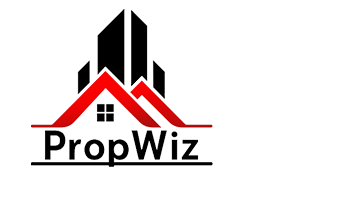
From Offer to Ownership: 25 Steps in the South African Property Transfer Process
Thursday, July 17, 2025

Buying or selling a home is a big milestone – but what actually happens after the Offer to Purchase is signed?
Many South Africans are surprised to learn how much happens behind the scenes before a property is officially transferred. The process involves attorneys, banks, municipalities, SARS, and sometimes estates or complexes – each playing a critical role in moving the sale forward.
To help buyers and sellers feel more confident and informed, we’ve broken down the full transfer process into 25 simple steps. Whether you're a first-time buyer or a seasoned investor, this guide will give you clarity on what to expect and why certain delays can occur.
1. Instruction Received
The seller’s estate agent sends instructions to a conveyancing attorney to handle the legal side of the transfer. At the same time, the buyer gives written consent for the bond originator to begin the home loan application process (if a bond is needed).
2. Initial Letters Sent
The attorney sends out formal letters to the buyer, seller, estate agent, and bond attorneys to confirm the deal and request supporting documents.
3. FICA Documents Received
Both the buyer and seller submit their FICA documents – these include proof of ID and address to comply with anti-money laundering legislation.
4. Bond Approval (If Applicable)
If the buyer is applying for a bond, they must obtain formal bond approval from the bank. The transfer can’t proceed without this.
5. Title Deed Requested
The attorney requests the current title deed (proof of ownership) from the Deeds Office or from the seller’s bank, depending on where it is held.
6. Title Deed Received
The title deed is received, confirming the legal owner and any existing bond on the property.
7. Rates Figures Requested
The attorney contacts the local municipality to ask how much is outstanding on the property’s municipal rates and taxes.
8. Rates Figures Received
The municipality sends a statement. All outstanding amounts must be paid before the transfer.
9. Levy Figures Requested
If the property is in a complex or estate, the attorney requests a breakdown of levies owed to the body corporate or homeowners’ association.
10. Levy Figures Received
These figures are sent through. As with rates, any levies must be paid before transfer.
11. Cancellation Figures Requested
If there’s still a bond on the property, the attorney requests a cancellation figure from the seller’s bank – this is the amount needed to settle and cancel the bond.
12. Balance of Purchase Price Received
The buyer pays the balance of the purchase price (after deposit and/or bond approval) into the attorney’s trust account.
13. Transfer Documentation Signed by Purchaser
The buyer visits the attorney to sign the legal documents required for the transfer.
14. Transfer Documentation Signed by Seller
The seller also signs the necessary paperwork for the transfer to proceed.
15. Pro Forma Costs Received
The attorney issues a cost breakdown to the buyer. This includes transfer fees, bond registration costs (if applicable), and other disbursements.
16. Transfer Duty Submitted
The attorney submits the necessary documentation to SARS to calculate the transfer duty – a property tax payable by the buyer.
17. Guarantees Sent to Cancellation Attorney
If a bond is involved, the bank’s guarantee is sent to the seller’s bank to confirm they will receive payment once the deal registers.
18. Rates Clearance Certificate Received
Once all rates are paid, the municipality issues a clearance certificate. This is mandatory for the transfer.
19. Levy Certificate Received
The body corporate or HOA issues a certificate confirming all levies have been settled – also a requirement before transfer.
20. Electrical Certificate Received
The seller must provide a valid Electrical Compliance Certificate to confirm the property’s wiring is safe and up to regulation.
21. Transfer Duty Receipt Received
After SARS processes the transfer duty, a receipt is issued. This is another legal requirement for registration.
22. Cancellation Attorney Ready to Lodge
The seller’s bond cancellation attorney confirms everything is in place and gives the go-ahead for lodging.
23. Lodged
All documents are submitted to the Deeds Office. This starts the official registration process. Lodgement to registration typically takes 7–10 working days.
24. Prepped
Deeds Office examiners check and match all documents. If everything is in order, the transaction moves through the system. If errors are found, the matter is delayed and re-lodged once corrected.
25. Registered
The property is officially registered in the buyer’s name. The seller is paid out, and the buyer becomes the new legal owner. From this moment, the buyer takes on all risk and responsibility for the property, including insurance and municipal accounts.
Why This Process Matters
While it may seem like a long list, each step is in place to protect everyone involved – buyer, seller, agent, bank, and the law.
Working with a reputable estate agency like PropWiz and experienced conveyancing attorneys can make a world of difference. We help guide you every step of the way, avoid common pitfalls, and ensure your transaction stays on track.
If you're buying or selling property in Potchefstroom, Pretoria, or beyond – let's chat. With PropWiz, you'll never be left wondering what's next.
Contact PropWiz today – where the genius isn’t just in our name, it’s in everything we do.
Property Sales | Property Rentals | Commercial Property | Property Development | Pretoria Real Estate Market | PPRA Registered
PropWiz is a proud PPRA-registered real estate agency in South Africa, ensuring ethical and professional service.
#PropertyTermsSouthAfrica #OTPmeaninginproperty #PotchProperty #PretoriaProperty #FirstTimeBuyers #RealEstateDecoded #PropWizExplains
